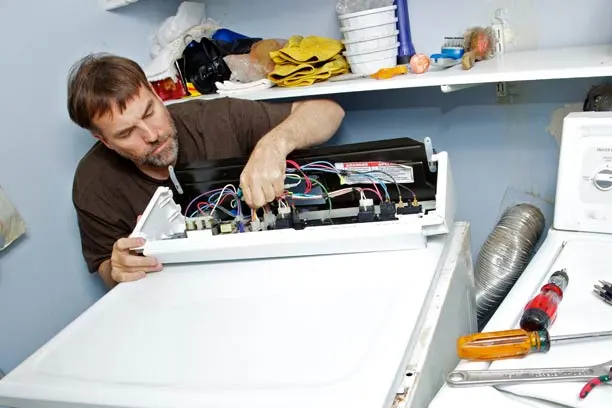Replace or Repair? How to Handle Appliances That No Longer Work


Whether it’s a relatively inexpensive item like a toaster or a major appliance like a refrigerator, it’s frustrating when something stops working. And it might have you wondering whether it makes sense to repair it or if you’re better off replacing it.
This guide can help you figure out what you can fix on your own, when to hire repair help and when it’s time for a replacement.
When it comes to how to repair an appliance cheaply, tackling it yourself could be the most affordable option.
A small kitchen appliance repair, or even a bigger appliance, might be something you can handle, especially if it’s something relatively simple like replacing a gasket, handle or shelf.
First, make sure the appliance is no longer under warranty, since a DIY repair mistake could void it.
Next, make sure it’s safe. Don’t take chances with electricity or gas, where you could risk a dangerous shock or explosion.
Consider how old the appliance is, and how long it’s expected to last. Newer appliances don’t last as long as older ones did. Many appliances average about seven years. You may be more likely to take a risk on an older appliance you would have to replace soon anyway, compared to something that’s newer.
Sites like iFixit have detailed guides for all kinds of household appliances, and you may also be able to find tutorials on YouTube.
If you’re not going to do it yourself, you need to decide whether to repair your appliance or replace it. That can be tough, since you don’t know how much a repair will cost.
Generally, it will make more sense to repair an appliance that was more expensive to buy. Repairing an appliance can also make smart environmental sense, since it keeps it out of a landfill.
If you’re not sure, you can check with local appliance repair companies, or the store where you purchased your appliance, to see if they offer free or low-cost diagnostics and repair estimates. An inexpensive repair could add years to the life of your appliance.
If your appliance is getting close to the end of its lifespan or the repair is expensive, you might decide that replacing it is your best choice. When you’re making this decision, be sure to factor in the full cost of the replacement. Along with the sticker price, you may need to pay for delivery, installation and removing your old appliance.
When you’re figuring out how to get rid of old appliances, you have a few options.
It’s a good idea to review your homeowner’s or renter’s insurance from time to time and make sure you have the coverage you need. Taking a look at your policy is especially important if you’re doing a major renovation or upgrading a lot of appliances. Connect with Farm Bureau to make sure you’re protected.